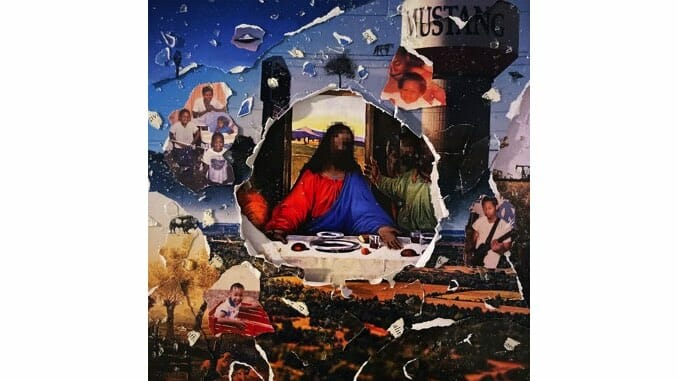Bartees Strange Is Only Getting Started on Farm to Table
The polymath’s second album is yet another showcase for his versatile excellence

Bartees Strange has been everywhere. Since his debut album, 2020’s Live Forever, he’s produced records for Harmony Woods and Oceanator, released a deluxe version of his debut with bonus tracks and reworked renditions of old songs, covered past tourmate Phoebe Bridgers’ “Kyoto” for a remix EP, worked with the legendary producer Will Yip, Kississippi, Armand Hammer, and Dr. Dog’s Eric Slick, and toured with a bevy of indie darlings. After such a deluge of creative output, you’d assume that Bartees would inevitably lose steam. Farm to Table, his second album and first for the legacy indie label 4AD, goes to show that assumptions aren’t shortcuts worth taking.
As his sundry collaborations show, Bartees doesn’t like to stay in any one place for too long. This attitude manifests in his music, too. Live Forever encompasses arty hip-hop (“Kelly Rowland”), For Emma Forever Ago-inflected folk (“Fallen for You”) and a dance track originally intended for house producer Yaeji (“Flagey God”). “I don’t give a fuck, I’ll rap the first verse and sing the next one like Kings of Leon,” he recently told Pitchfork. Farm to Table continues this trend, displaying genre’s intrinsic, conceptual malleability and how artists can bend it to their liking. Rather than contorting himself to fit into genre-conventional boxes, Bartees molds a style to match his vision; it’s merely a tool for his idiosyncratic expression, not an end product in and of itself.
It’s this musical elasticity that has earned Bartees universal praise and a devoted fanbase. Although he released a covers EP of The National songs months before his debut, it was Live Forever that ultimately launched him into a different league. He understood that the record was going to change his life for better or worse, and he used this uncertainty as fuel for his next project. “I wanted to preserve the brain I had in that moment,” he said in the aforementioned interview. “If everyone hated Live Forever, I was going to be fucked up. If everyone loved it, I was going to be fucked up.” To preserve his artistic spirit, he began tracking the new record just a day shy of Live Forever’s release. Initially an EP, Farm to Table quickly metamorphosed into a full-blown LP. Similar to the way in which the Super Mario Galaxy team kept churning out brilliant level ideas and used them for a sequel, Farm to Table is yet another showcase for Bartees’ versatile excellence.
The second track, “Mulholland Dr,” is an immediate highlight. It summons Gorilla Manor-era Local Natives with its swift rim clicks and limber, melodic guitar lines. Eventually, it shifts into a verse comprising Prismizer-esque vocals reminiscent of a more grounded 22, A Million. If there’s a thesis statement for Farm to Table, the quicksilver nature of “Mulholland Dr” makes it a worthy candidate. “Wretched,” a bouncy synth-pop dance cut, is like a sequel to “Flagey God,” repurposing one of the latter’s vocal hooks to transition into a shimmering, clubby chorus. “We Were Only Close for Like Two Weeks” is a brief but fun intermission that blends the THC-charged abstractions of the first Big Red Machine album with the glitchy cadences of Bartees’ own “Mossblerd.”
-

-

-

-

-

-

-

-

-

-

-

-

-

-

-

-

-

-

-

-

-

-

-

-

-

-

-

-

-

-

-

-

-

-

-

-

-

-

-

-








































